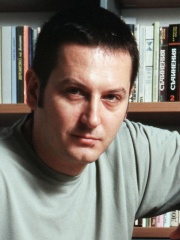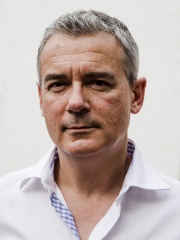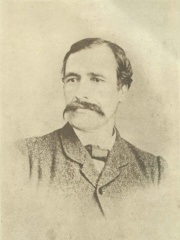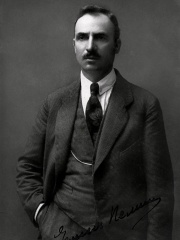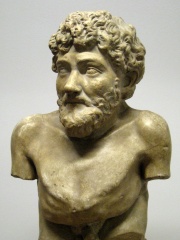
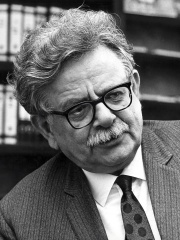
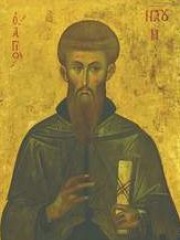
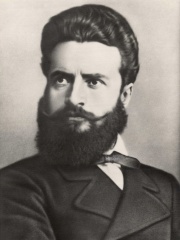

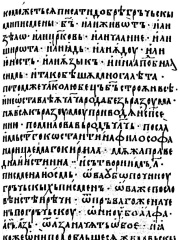
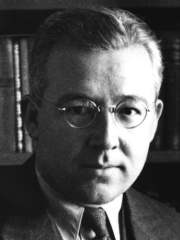

The Most Famous
WRITERS from Bulgaria
Top 10
The following people are considered by Pantheon to be the top 10 most legendary Bulgarian Writers of all time. This list of famous Bulgarian Writers is sorted by HPI (Historical Popularity Index), a metric that aggregates information on a biography's online popularity. Visit the rankings page to view the entire list of Bulgarian Writers.

1. Aesop (620 BC - 564 BC)
With an HPI of 86.32, Aesop is the most famous Bulgarian Writer. His biography has been translated into 102 different languages on wikipedia.
Aesop ( EE-sop; Ancient Greek: Αἴσωπος, Aísōpos; c. 620–564 BCE; formerly rendered as Æsop) was a Greek fabulist and storyteller credited with a number of fables now collectively known as Aesop's Fables. Although his existence remains unclear and no writings by him survive, numerous tales credited to him were gathered across the centuries and in many languages in a storytelling tradition that continues to this day. Many of the tales associated with him are characterized by anthropomorphic animal characters. Scattered details of Aesop's life can be found in ancient sources, including Aristotle, Herodotus, and Plutarch. An ancient literary work called The Aesop Romance tells an episodic, probably highly fictional version of his life, including the traditional description of him as a strikingly ugly slave (δοῦλος) who by his cleverness acquires freedom and becomes an adviser to kings and city-states. Older spellings of his name have included Esop(e) and Isope. Depictions of Aesop in popular culture over the last 2,500 years have included many works of art and his appearance as a character in numerous books, films, plays, and television programs.

2. Elias Canetti (1905 - 1994)
With an HPI of 79.19, Elias Canetti is the 2nd most famous Bulgarian Writer. His biography has been translated into 87 different languages.
Elias Canetti (Bulgarian: Елиас Канети; 25 July 1905 – 14 August 1994; ; German pronunciation: [eˈliːas kaˈnɛti]) was a German-language writer, known as a modernist novelist, playwright, memoirist, and nonfiction writer. Born in Ruse, Bulgaria, to a Sephardic Jewish family, he later lived in England, Austria, Germany, and Switzerland. He won the 1981 Nobel Prize in Literature, "for writings marked by a broad outlook, a wealth of ideas and artistic power". He is noted for his nonfiction book Crowds and Power, among other works.

3. Saint Naum (830 - 910)
With an HPI of 71.44, Saint Naum is the 3rd most famous Bulgarian Writer. His biography has been translated into 30 different languages.
Naum (Bulgarian and Macedonian: Свети Наум, romanized: Sveti Naum), also known as Naum of Ohrid or Naum of Preslav (c. 830 – December 23, 910), was a medieval Bulgarian writer and missionary among the Slavs, considered one of the Seven Apostles of the First Bulgarian Empire. He was among the disciples of Cyril and Methodius and is associated with the creation of the Glagolitic and Cyrillic script. Naum was among the founders of the Pliska Literary School. Afterwards Naum worked at the Ohrid Literary School. He was among the first saints declared by the Bulgarian Orthodox Church after its foundation in the 9th century. The mission of Naum played significant role by transformation of the local Early Slavs into Bulgarians.

4. Hristo Botev (1848 - 1876)
With an HPI of 66.78, Hristo Botev is the 4th most famous Bulgarian Writer. His biography has been translated into 40 different languages.
Hristo Botev (Bulgarian: Христо Ботев, pronounced [ˈxristo ˈbɔtɛf]), born Hristo Botyov Petkov (Христо Ботьов Петков; 6 January 1848 [O.S. 25 December 1847] – 1 June [O.S. 20 May] 1876), was a Bulgarian revolutionary and poet. Botev is considered by Bulgarians to be a symbolic historical figure and national hero. His poetry is a prime example of the literature of the Bulgarian National Revival, though he is considered to be ahead of his contemporaries in his political, philosophical, and aesthetic views. Botev was born in Kalofer, Bulgaria, to Botyo Petkov and Ivanka Boteva. His father was a teacher in Odessa and a significant figure of the late period of the Bulgarian National Revival. Botev attended the local three-class school and later attended a high school in Odessa. He left high school in 1865 and spent two years teaching in Odessa and Bessarabia. Botev tried to send his son to study in the Russian Empire with the help of Nayden Gerov, but was only allowed to attend the Second Grammar School as a volunteer. He found it difficult to fit in and was often absent from lessons and treated teachers with arrogance. In 1864, he left the boarding school and began living independently in various lodgings. Botev spent time in libraries, particularly the Bulgarian library Yuriy Venelin, where he read mainly Russian authors and became acquainted with philologist Victor Grigorovich. He worked on his poem "To My Mother" in the summer of 1864 and sent it to Petko Slaveykov in Constantinople. When it became apparent that Botev was failing the gymnasium's third grade and was expelled for "carelessness," his scholarship was cancelled and he was given a lump sum to travel back to Bulgaria. Botev was sent by his father to Odessa to resume his education. He decided to go to Romania instead, arriving in Giurgiu in September 1867. He met with Bulgarian émigrés and met Vasil Levski, the leader of the Bulgarian Revolutionary Central Committee. Botev worked as a teacher in Bessarabia and became editor of the revolutionary emigrant newspaper "Word of the Bulgarian Emigrants". He was imprisoned for months due to his collaboration with Russian revolutionaries. The Bulgarian revolutionary movement faced danger after the capture of Vasil Levski by Ottoman authorities in 1872. The BRCC split into two factions: Botev and his supporters supported immediate uprising preparations, while moderate revolutionaries, led by Lyuben Karavelov, believed it was too early. In 1876, Bulgarian revolutionary émigrés in Romania believed a general armed uprising against Ottoman occupation was imminent and decided to organize an armed company to cross the Danube. Botev took overall command of the company, which later became the main reason for the Russian-Turkish war and Bulgaria's Liberation from the Ottoman Empire. Military expertise was provided by Nikola Voinovski, a graduate of the Nicholas General Staff Academy. Botev devised a plan to cross into Ottoman territory without immediately alerting Romanian or Ottoman authorities. The rebels boarded the Austro-Hungarian passenger steamship Radetzky and seized control. The Ottoman military machine, including regular army garrisons and irregular bashi-bazouks, was mobilized and patrolled the area. On 20 May 1876, a single bullet hit Botev in the chest, killing him instantly. The cheta suffered a drop in morale and began to disperse, with most members captured, imprisoned, or executed. In total, 130 cheta members were killed, with most evading capture or death. The incident is traditionally commemorated on 2 June.
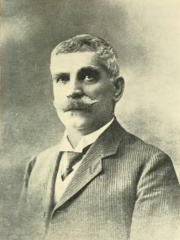
5. Ivan Vazov (1850 - 1921)
With an HPI of 66.25, Ivan Vazov is the 5th most famous Bulgarian Writer. His biography has been translated into 53 different languages.
Ivan Minchov Vazov (Bulgarian: Иван Минчов Вазов; 9 July [O.S. 27 June] 1850 – 22 September 1921) was a Bulgarian poet, novelist, and playwright, often referred to as "the Patriarch of Bulgarian literature". He was born in Sopot, a town in the Rose Valley of Bulgaria (then part of the Ottoman Empire). The works of Ivan Vazov reveal two historical epochs - the Bulgarian Renaissance and the Post-Liberation (from Ottoman Empire rule) epoch. Ivan Vazov holds the highest honorary title of the Bulgarian Academy of Sciences - Academician. He acted as Education and People Enlightenment Minister from September 7, 1897, until January 30, 1899, representing the People's Party.

6. Georgi Markov (1929 - 1978)
With an HPI of 65.15, Georgi Markov is the 6th most famous Bulgarian Writer. His biography has been translated into 35 different languages.
Georgi Ivanov Markov (Bulgarian: Георги Иванов Марков [ɡɛˈɔrɡi ˈmarkov]; 1 March 1929 – 11 September 1978) was a Bulgarian dissident writer. He worked as a novelist, screenwriter and playwright in his native country, the People's Republic of Bulgaria, until his defection in 1969. After relocating to London, he worked as a broadcaster and journalist for the BBC World Service, the Radio Free Europe and West Germany's Deutsche Welle. Markov used such forums to conduct a campaign of sarcastic criticism against the incumbent Bulgarian-Soviet regime. Markov was assassinated on a London street via a micro-engineered pellet that might have contained ricin. Contemporary newspaper accounts reported that he had been stabbed in the leg with an umbrella delivering a poisoned pellet, wielded by someone associated with the Bulgarian Secret Service. Annabel Markov recalled her husband's view about the umbrella, telling the BBC's Panorama programme, in April 1979, "He felt a jab in his thigh. He looked around and there was a man behind him who'd apologized and dropped an umbrella. I got the impression as he told the story that the jab hadn't been inflicted by the umbrella but that the man had dropped the umbrella as cover to hide his face." It was reported after the fall of the Soviet Union that the Soviet KGB had assisted the Bulgarian Secret Service.

7. Chernorizets Hrabar (890 - 950)
With an HPI of 65.00, Chernorizets Hrabar is the 7th most famous Bulgarian Writer. His biography has been translated into 17 different languages.
Chernorizets Hrabar (Church Slavonic: Чрьнори́зьць Хра́бръ, Črьnorizьcь Hrabrъ) was a Bulgarian monk, scholar and writer who is credited as the author of On the Letters. He worked at the Preslav Literary School in the First Bulgarian Empire at the end of the 9th and the beginning of the 10th century.

8. Sabahattin Ali (1907 - 1948)
With an HPI of 63.00, Sabahattin Ali is the 8th most famous Bulgarian Writer. His biography has been translated into 34 different languages.
Sabahattin Ali (25 February 1907 – 2 April 1948) was a Turkish novelist, short-story writer, poet, and journalist.

9. Gregory Tsamblak (1365 - 1420)
With an HPI of 62.19, Gregory Tsamblak is the 9th most famous Bulgarian Writer. His biography has been translated into 16 different languages.
Gregory Tsamblak (c. 1365 – c. 1420), member of the Tzamplakon family, was a writer and cleric active in Bulgaria, Moldavia, Serbia, Grand Duchy of Lithuania, and the Principality of Kiev.

10. Constantine of Preslav (900 - 1000)
With an HPI of 59.46, Constantine of Preslav is the 10th most famous Bulgarian Writer. His biography has been translated into 15 different languages.
Constantine of Preslav (Bulgarian: Константин Преславски) was a medieval Bulgarian scholar, writer and translator, one of the most important men of letters working at the Preslav Literary School at the end of the 9th and the beginning of the 10th century. Biographical evidence about his life is scarce but he is believed to have been a disciple of Saint Methodius. After the saint's death in 885, Constantine was jailed by the Germanic clergy in Great Moravia and sold as slave in Venice. He escaped to Constantinople, moving to Bulgaria around 886 and working at the Preslav Literary School. He was one of the most prolific and important writers in Old Bulgarian. His most significant literary work was Учително евангелие (The Didactic Gospel), usually dated to the first years of the reign of Bulgarian tsar Simeon I, 893 – 894. The work represents a compilation of lectures about a number of church holidays and is the first systematic work treating sermons in Slavic literature. The compilation also features the poetic preface Азбучна молитва (Alphabet Prayer), the first original poetry in Old Church Slavonic. In 894 Constantine of Preslav wrote the historical work Историкии (Histories), the first historical chronicle in Slavic literature. In 906, by commission from Simeon I, the author translated Четири слова против арианите (Four Epistles against the Arians) by Saint Athanasius of Alexandria, as a response to the beginning of the spread of heresies in medieval Bulgaria. Constantine is also the alleged author of Служба на Методия (Service for Methodius), in which he relates the struggle of Saint Methodius for the recognition of Old Church Slavonic, as well as of Проглас към евангелието (Proclamation of the Holy Gospels) in which he rejects and admonishes the admiration of the foreign language (mean. Greek) and champions Old Bulgarian for the development and elevation of Bulgarian culture. None of the original works of Constantine of Preslav has survived the burning of Preslav by Byzantine Emperor John I Tzimisces in 972 and the period of Ottoman rule (1396 – 1878). All of his works are known from copies, the earliest of which date back to the 12th and the 13th century.
People
Pantheon has 34 people classified as Bulgarian writers born between 620 BC and 1968. Of these 34, 2 (5.88%) of them are still alive today. The most famous living Bulgarian writers include Georgi Gospodinov, and Ilija Trojanow. The most famous deceased Bulgarian writers include Aesop, Elias Canetti, and Saint Naum.
Living Bulgarian Writers
Go to all RankingsDeceased Bulgarian Writers
Go to all RankingsAesop
620 BC - 564 BC
HPI: 86.32
Elias Canetti
1905 - 1994
HPI: 79.19
Saint Naum
830 - 910
HPI: 71.44
Hristo Botev
1848 - 1876
HPI: 66.78
Ivan Vazov
1850 - 1921
HPI: 66.25
Georgi Markov
1929 - 1978
HPI: 65.15
Chernorizets Hrabar
890 - 950
HPI: 65.00
Sabahattin Ali
1907 - 1948
HPI: 63.00
Gregory Tsamblak
1365 - 1420
HPI: 62.19
Constantine of Preslav
900 - 1000
HPI: 59.46
Georgi Sava Rakovski
1821 - 1867
HPI: 58.68
Elin Pelin
1877 - 1949
HPI: 58.63
Overlapping Lives
Which Writers were alive at the same time? This visualization shows the lifespans of the 24 most globally memorable Writers since 1700.

